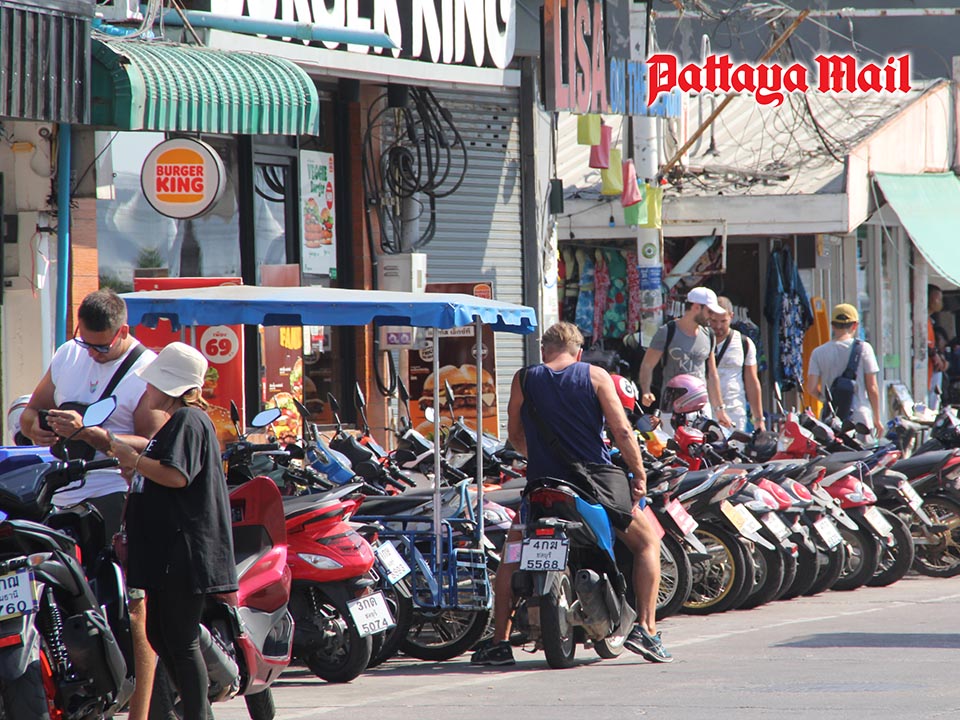Pattaya needs every market there is— and American and British retirees are coming back
Every visitor counts—Pattaya’s economy depends on a diverse mix of tourists and long-term residents. (Photo by Jetsada Homklin)
PATTAYA, Thailand – As Pattaya navigates a period of shifting tourism dynamics, one truth stands firm: the city needs every market it can get. From American and British retirees to Indian family travelers and curious visitors from Taiwan and Israel, Pattaya’s economy thrives only when doors are open and all are welcome. And despite concerns about falling Chinese arrivals, many in the industry are confident that retirees from the US and UK will return soon in strong numbers—“and problem solved,” as one local business owner put it.
Much of the panic about Chinese shortfalls ignores one fact: Chinese group tourism hasn’t always meant local profit. Zero-dollar tours, popular before the pandemic, often directed Chinese tourists to Chinese-owned hotels, restaurants, souvenir shops, and even transportation services. These tightly controlled package deals brought travelers to Thailand but often diverted their spending into a closed loop—one that rarely benefitted Thai businesses. Many of these “Chinese-owned” operations, as some commenters note, are actually operated by Thai nationals of Chinese descent, the same families who dominate Thailand’s corporate landscape. Either way, the net effect for small independent Thai vendors was minimal.
In contrast, Indian tourists—though often mocked online for frugality—are proving their worth. They stay in Thai-run hotels, eat from local food vendors, and pay for boat rides, tours, and activities. One longtime expat quipped that while Chinese tourists may hit the malls, Indian travelers book the rooms and ride the jet skis. The volume of Indian tourism is becoming impossible to ignore, and despite old stereotypes, it’s helping Pattaya stay afloat during a time of broader regional tourism shifts.
With retirees coming back, Pattaya’s tourism scene is ready to bounce back stronger than ever. (Photo by Jetsada Homklin)
Even so, many travelers from Western countries—particularly regulars from the UK, Germany, and the US—say they feel increasingly unwelcome due to inconsistent visa policies and rigid border enforcement. Some shared stories of being turned away or pressured to pay questionable “fines” at the border, even after years of visiting and spending freely in Thailand. “My friend got threatened with deportation until he offered to pay $600 to be allowed in,” one man recalled. “He just wanted to relax for a few weeks and spend money here, but now he’s rethinking if it’s worth it.”
There’s also the growing sentiment that Thailand’s government has misread the moment. “The only people that can’t see the pattern are the Thai government,” one frustrated expat said. “Chinese tourists don’t spend in the real Thai economy. Everyone else does.”
Still, Pattaya remains resilient. Its hotels are open, its nightlife is back, and its beaches are once again drawing sunseekers from across the world. The city’s future depends not on one nation or one market, but on the willingness to welcome all travelers equally. Tourism is about more than arrival numbers—it’s about who stays, who spends, and who tells others to come.
If Thailand wants a sustainable rebound, Pattaya’s path is clear. It needs retirees and first-timers, group tours and solo travelers, Chinese shoppers and Indian honeymooners alike. No one can replace another entirely, but together, they keep the lights on. The economy doesn’t care what passport you hold—only whether you show up and stay awhile.
No matter where you’re from, Pattaya welcomes you with open arms and bright opportunities. (Photo by Jetsada Homklin)



